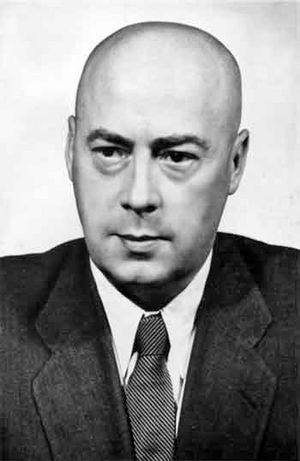Józef Cyrankiewicz facts for kids
Quick facts for kids
Józef Cyrankiewicz
|
|
|---|---|
 |
|
| 2nd Prime Minister of the Polish People's Republic | |
| In office 18 March 1954 – 23 December 1970 |
|
| Deputy |
See list
Jakub Berman
Hilary Minc Zenon Nowak Tadeusz Gede Stefan Jędrychowski Konstanty Rokossowski Piotr Jaroszewicz Stanisław Łapot Franciszek Jóźwiak Eugeniusz Stawiński Zenon Nowak Stefan Ignar Eugeniusz Stawiński Zenon Nowak Stefan Ignar Piotr Jaroszewicz Eugeniusz Szyr Julian Tokarski Stefan Ignar Piotr Jaroszewicz Zenon Nowak Eugeniusz Szyr Julian Tokarski Franciszek Waniołka Julian Tokarski Zenon Nowak Eugeniusz Szyr Franciszek Waniołka Stefan Ignar Piotr Jaroszewicz Stanisław Kociołek Marian Olewiński Piotr Jaroszewicz Stanisław Majewski Eugeniusz Szyr Eugeniusz Szyr Zdzisław Tomal Józef Kulesza Mieczysław Jagielski |
| Chairman | Aleksander Zawadzki Edward Ochab Marian Spychalski |
| First Secretary | Bolesław Bierut Edward Ochab Władysław Gomułka Edward Gierek |
| Preceded by | Bolesław Bierut |
| Succeeded by | Piotr Jaroszewicz |
| In office 6 February 1947 – 20 November 1952 |
|
| President | Bolesław Bierut |
| Deputy | Władysław Gomułka Antoni Korzycki Aleksander Zawadzki Hilary Minc Hilary Chełchowski Stefan Jędrychowski Tadeusz Gede |
| First Secretary | Władysław Gomułka Bolesław Bierut |
| Preceded by | Edward Osóbka-Morawski |
| Succeeded by | Bolesław Bierut |
| 4th Chairman of the Council of State of the People's Republic of Poland | |
| In office 23 December 1970 – 28 March 1972 |
|
| Prime Minister | Piotr Jaroszewicz |
| First Secretary | Edward Gierek |
| Preceded by | Marian Spychalski |
| Succeeded by | Henryk Jabłoński |
| Personal details | |
| Born | 23 April 1911 Tarnów, Austro-Hungary (now Poland) |
| Died | 20 January 1989 (aged 77) Warsaw, Polish People's Republic |
| Political party | PPS (1930s-1948) PZPR (1948-1989) |
Józef Cyrankiewicz (born April 23, 1911 – died January 20, 1989) was an important Polish politician. He was a member of the Polish Socialist Party (PPS) and later the Polish United Workers' Party (PZPR). He served as the Prime Minister of the Polish People's Republic twice. His first term was from 1947 to 1952. His second term lasted 16 years, from 1954 to 1970. He also held the role of Chairman of the Polish Council of State from 1970 to 1972.
Contents
Early Life and Political Beginnings
Józef Cyrankiewicz was born in Tarnów, a city that was part of the Austro-Hungarian Empire at the time. His father, Józef, was a local activist and a soldier. His mother, Regina, owned sawmills.
Józef Cyrankiewicz studied at the Jagiellonian University. In 1935, he became the secretary of the Kraków branch of the Polish Socialist Party. This was his first step into a long political career.
World War II Experiences
When World War II began in 1939, Cyrankiewicz joined the Polish resistance. He was part of the Union of Armed Struggle, which later became the Armia Krajowa. This group fought against the German occupation.
In 1941, the Gestapo (German secret police) captured him. He was first held in Montelupich prison. Later, he was sent to the Auschwitz concentration camp in September 1942. As the war neared its end, he was moved to the Mauthausen camp. He was eventually freed by the US Army.
Becoming a Leader in Post-War Poland
First Time as Prime Minister
After World War II ended, Cyrankiewicz became a key figure in the Polish Socialist Party. In 1946, he was made the secretary-general of the party's main committee. The party had different ideas about how to work with the communists.
Cyrankiewicz believed the Socialist Party should work with the communists. He thought they could help create a socialist country. In 1947, he became the Prime Minister. In 1948, the Socialist Party joined with the Communist Polish Workers' Party (PPR). They formed a new party called the Polish United Workers' Party (PZPR). Cyrankiewicz remained Prime Minister after this merger. He also became a secretary in the PZPR's main committee. In 1952, he stepped down as Prime Minister.
Second Time as Prime Minister
In 1954, Cyrankiewicz became Prime Minister again. He held this position for 16 years, until 1970. During this time, Poland was under "collective leadership."
In 1956, there were protests across the country. Cyrankiewicz, as Prime Minister, worked to control these events. Later, in 1970, there were large demonstrations on the coast. These protests led to many deaths and injuries. A few months after these events, Cyrankiewicz left the role of Prime Minister. He then became the Chairman of the Council of State. This position was similar to a president. He held this role until he retired in 1972. Józef Cyrankiewicz passed away in 1989.
Awards and Recognitions
Józef Cyrankiewicz received many honors for his work.
- From the Polish People's Republic:
- From other countries:
 Grand Cross of the Legion of Honour (France)
Grand Cross of the Legion of Honour (France) Knight Grand Cross with Collar of the Order of Merit of the Italian Republic (Italy)
Knight Grand Cross with Collar of the Order of Merit of the Italian Republic (Italy) Jubilee Medal "In Commemoration of the 100th Anniversary of the Birth of Vladimir Ilyich Lenin" (Soviet Union)
Jubilee Medal "In Commemoration of the 100th Anniversary of the Birth of Vladimir Ilyich Lenin" (Soviet Union)
See also
 In Spanish: Józef Cyrankiewicz para niños
In Spanish: Józef Cyrankiewicz para niños
- History of Poland (1945-1989)
- List of honorary citizens of Skopje
 | Mary Eliza Mahoney |
 | Susie King Taylor |
 | Ida Gray |
 | Eliza Ann Grier |

